By Dave Paone
Campus News
Hunter Adamo was never a model student. “I almost failed out of high school many times,” he told Campus News.
“I would sit in class – fall asleep – I couldn’t really pay attention. There’s not many things in my life that interest me and make me motivated, but cars have always been one of them.”
This very scenario is what makes him and the Automotive Technology program at Suffolk County Community College a perfect match.
Pictured: Suffolk County CC instructor Jordan Berger (R) and students Steve Mendez (L) and Franklin Morales work on a Tundra in the Toyota auto shop. –dp photos
For many years now there’s been a major push in public schools for all students to attend college. Along with that push came the disrespect of trade schools – which used to be considered a viable option for many students, especially for those who are not academically inclined.
At Suffolk, the auto program combines the option of a trade school with the credits of a college. This makes everyone happy.
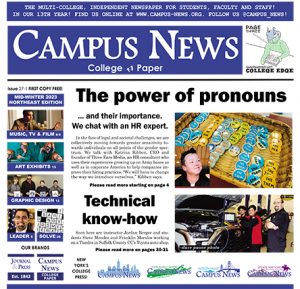
Hunter had the opportunity to study auto repair at BOCES in high school but didn’t take advantage of the offer. One of his English teachers recommended the Suffolk program and he applied.
The 18-year-old is on his way to an AA degree, which two years ago he’d never thought he’d have.
Steve Mendez has a similar story. He wasn’t a model student, either, and after graduation started working at a car dealership in Smithtown, starting as a “detail guy,” vacuuming and cleaning cars. He moved up to maintenance tech, thanks to his three years of BOCES training.
Some of the 21-year-old’s coworkers are in their second year in the Suffolk program and spoke highly of it, so he applied. This new training will help him get a better position at the dealership, as a C-Tech mechanic.
The Automotive Technology program at Suffolk is huge, with 13 instructors, a building with six shops, and classes that can result in either two certifications or three degrees.
But what really makes the program work is the corporate partnerships. General Motors, Toyota, and Honda have partnered with the college, which essentially gives them a college-to-dealership pipeline of qualified mechanics.
These partnerships aren’t really new.
“The program’s 35 years old – started in 1987 – as a result of industry coming to the college with a need for automotive service technicians,” David Macholz, an instructor and the assistant dean of transportation programs told Campus News.
“Part of that conversation started with General Motors,” he said. “There was a need for service technicians in the General Motors dealerships.”
Even with such a big, corporate partner, the program had a small start. There was no designated building for it yet but there was a building with a garage with one bay for the use of 20 students.
Almost immediately the college rented space from Eastern Suffolk County BOCES as the program grew.
The current building was erected in 1996 and was designed to accommodate 40 students. The shops were laid out in conjunction with the General Motors training model.
In 2003, Toyota came knocking.
“Same situation,” said David. “Huge shortage of skilled technicians.”
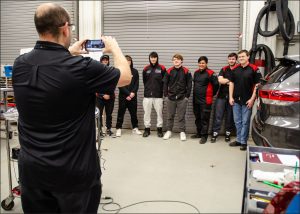 Toyota offered cars for the students to learn on, training for the faculty, and “industry-recognized credentials embedded into the program,” which is essentially what GM did.
Toyota offered cars for the students to learn on, training for the faculty, and “industry-recognized credentials embedded into the program,” which is essentially what GM did.
“Not only were the students getting a two-year degree, but they’re getting all the industry-recognized credentials that you would need to be about 80% master certified,” said David.
Such a certification from the dealers directly would mean relocating to New Jersey (Toyota) or Upstate New York (GM) for the duration of the training.
SCCC is one of only nine community colleges in the country that have partnered with Tesla for a modified program.
“We’ve had students that have four-year, engineering degrees come and take that program because they want to get a foot in the door to Tesla and they don’t have the hands-on or technical skills,” said David.
The modest enrollment of 20 students in 1987 has multiplied to over 200 per semester in 2023. “And we are way out of space,” said David. “We run from 7:30 in the morning to 10:00 at night,” he said.
A new facility at SCCC’s Brentwood campus is in the works, which will be about three times the size of the current building, which may be repurposed for auto body, diesel, and marine classes.
David estimates there are about 400 dealerships in the New York, metropolitan area, and if each wants just one technician, he’s still not producing enough graduates to meet their needs.
“It’s a huge demand,” he said. “And it’s led to the popularity of our program.”
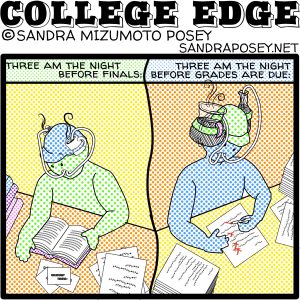
Back in the day when just about every high school had an industrial arts department, guidance counselors often used it as a dumping ground for students they didn’t know what to do with. Generally boys who were underachievers in academics – and may also have discipline problems – we put in auto shop.
There’s no room for that now. With the complicated computer systems and advanced technology on new cars, David likens his program to STEM, where students need to be intelligent enough to understand them and not cause additional damage.
“There’s no greater STEM program than an automotive program because it’s all of that applied,” he said.
Another change in dynamics is auto repair is no longer a boys’ club. The program currently has six female students and one female instructor.
“Many women are the individual in their household that’s bringing their car in for service,” said David. “There’s a level of comfort there if they’re dealing with a woman more so than dealing with a man.”
David believes that with a female instructor, the female students “immediately have a point-person to identify with and talk to.”
David estimates his graduates could make “a six-figure salary.” In December, the department had a job fair where dealerships, trucking companies, the United States Postal Service, and individually-owned car repair shops came looking for future employees.
Michael Stein is an 18-year-old, first-year student in the program. He knew from his time at BOCES in high school that he wanted a career in the auto industry and came to SCCC to make it happen.
He said, “In the end I know it’ll pay off and I’ll be happy, doing what I want to do.”





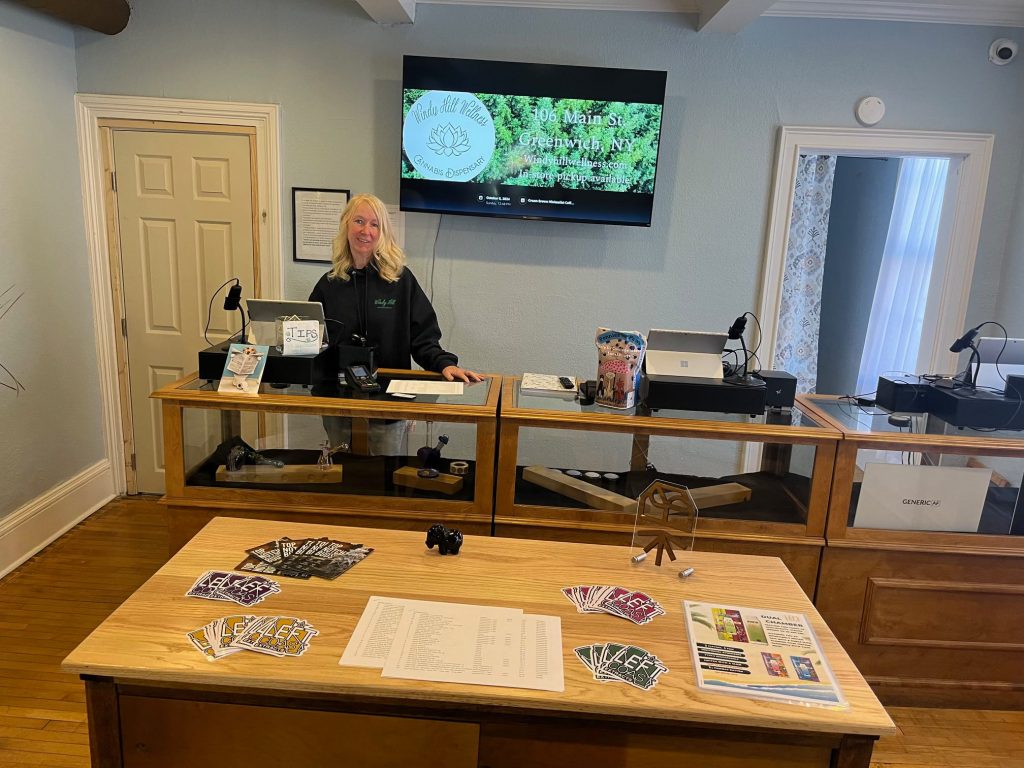
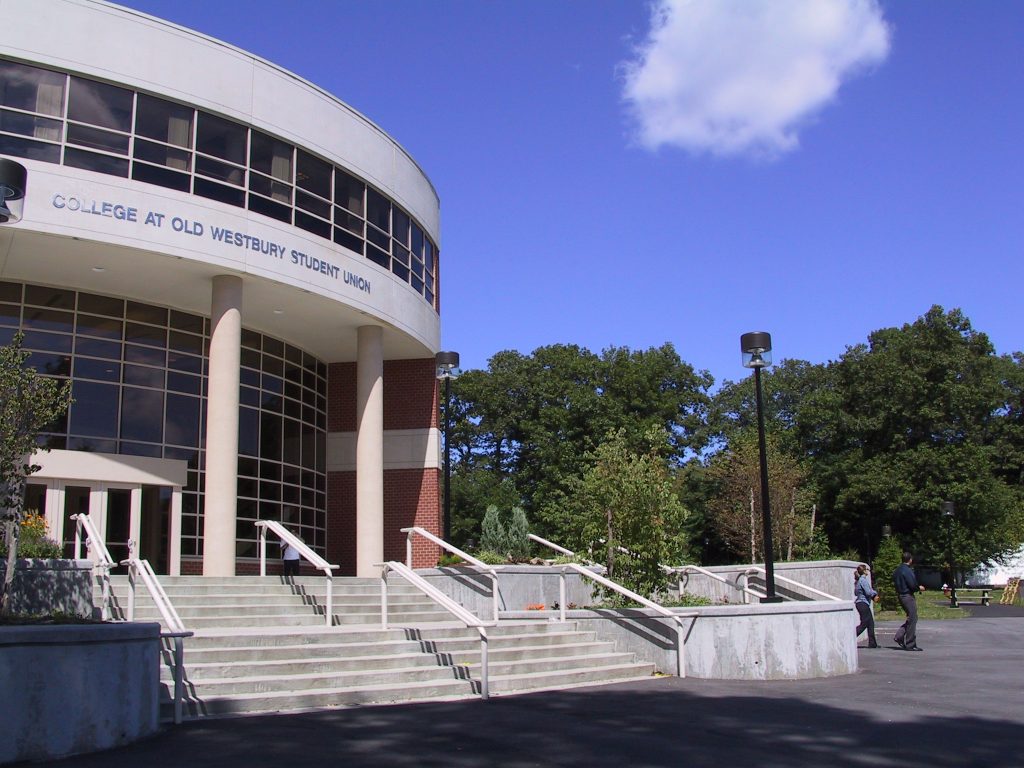
Facebook Comments